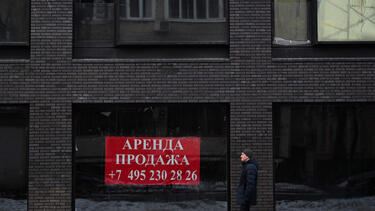Faculty Viewpoints
Personal Finance: Popular Authors vs. Economists
Before teaching a personal finance course, Prof. James Choi dipped into some popular books on the topic. He found that much of what personal finance gurus suggest is at odds with economic research—but that they also have insights into human nature that are sometimes missing from economic analyses.
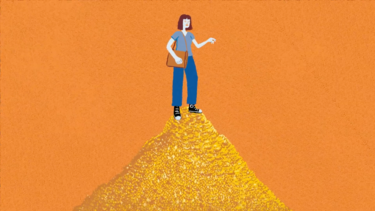
The Dominion Settlement Is Just the Beginning of Fox’s Nightmare
Yale SOM’s Jeffrey Sonnenfeld and Steven Tian write that the historic settlement and the revelations that preceded it have left Fox Corporation damaged and vulnerable to additional litigation.

Remembering Oz Nelson, Who Reinvented UPS
In the 1990s, Nelson modernized the shipping company and gave it a new focus on the customer. Yale SOM’s Jeffrey Sonnenfeld remembers the former CEO, who died on April 6.
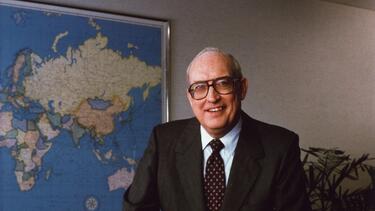
How Disney’s Bob Iger Outmaneuvered Ron DeSantis
Yale SOM’s Jeffrey Sonnenfeld writes that Iger offered a master class in standing up to bullies when he undercut the Florida governor’s attempt to impose new oversight on Walt Disney World.

Just Say No to Handing Putin Control of the UN Security Council
Russia is slated to assume the presidency of the UN Security Council on April 1. Yale SOM’s Jeffrey Sonnenfeld, Senator Richard Blumenthal, and former ambassador Jon Huntsman write that the U.S. must exercise its rarely-used veto powers to prevent Russia from using the role to whitewash its invasion of Ukraine.
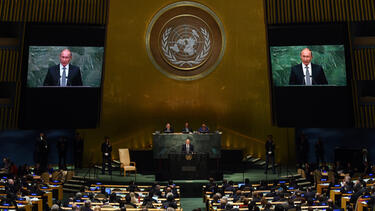
The Decades-Long Effort to Account for the Value of Natural Resources
Yale School of the Environment economist Eli Fenichel helped develop a national strategy to integrate environmental and economic decision-making.

Why Accountability Needs an Upgrade
In an excerpt from their new book, Conscious Accountability, Yale SOM’s David Tate and his co-authors Marianne Pantalon and Daryn David argue for looking beyond blame and punishment and embracing a form of accountability based on clear communication and mutual trust.

The Fed Pushed Silicon Valley Bank Off the Cliff
Yale SOM’s Jeffrey Sonnenfeld and Steven Tian and Jeremy Siegel of the Wharton School write that the Federal Reserve’s impatience in taming inflation could tip the economy into crisis.
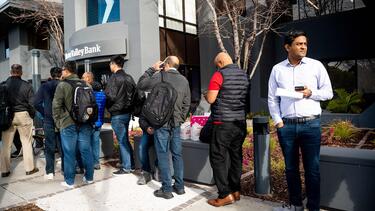
With ‘Zero Visibility’ into the Russian Economy, the IMF is Parroting Putin’s Line
Rather than admitting ignorance, write Yale’s Jeffrey Sonnenfeld, Stephen Roach, and Steven Tian, the IMF is accepting the Kremlin’s statistics—and fueling pessimism about the impact of sanctions.

A Year after the Invasion, the Russian Economy Is Self-Immolating
Economic pressure and a talent drain are pushing Russia into permanent irrelevance, write Yale SOM’s Jeffrey Sonnenfeld and Steven Tian.
